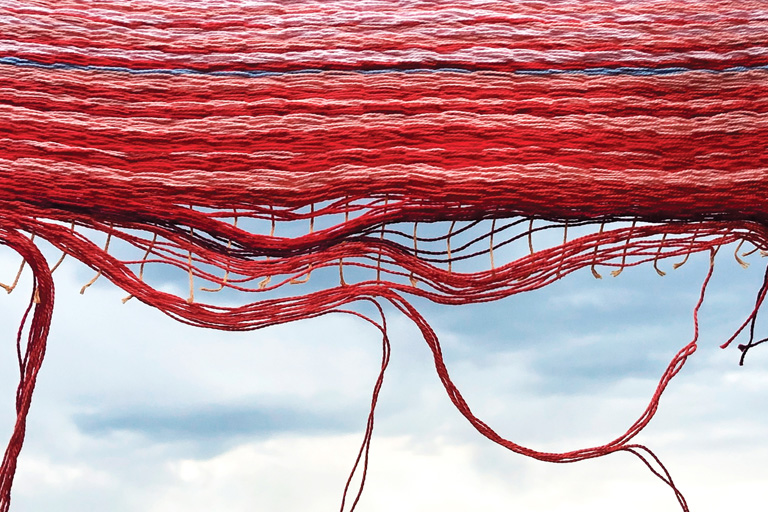I write in the quirky coffee shop, aware of my twitchy fingers and buzzy mind from the caffeine dose I ingested. My little table sits alongside a huge glass garage door. This shop is a repurposed Jiffy Lube. Where car mechanics once drained and refilled motor oil, now workers of the information age drain and refill coffee-themed beverages. Lubricants likely derived from below-ground deposits in the deserts of the Middle East have given way to beans likely plucked from the rainforests of South America as the engine of commerce at this site. To consummate the makeover, one interior wall of the coffee shop sports a mural of a montane Douglas fir forest to remind us environmentally enlightened customers of our home habitat in the Pacific Northwest of the United States.
The transformation of this shop is a feel-good story during the era of climate change. After all, if we’re charged with ending our addiction to fossil fuels, then sunsetting Jiffy Lubes and other car-servicing sites constitutes a logical step. But as I survey the scene, I recognize it’s more of a “feel-decent” or “not-quite-sure-how-to-feel” story. Stools and chairs made of metal. Where was it mined? How did it get here? Exotic beans shipped from halfway across the globe. What’s the state of the habitat where they were grown? Who grew them and what are their living conditions like? Could a locally produced beverage provide similar smell, taste, and psychotropic effect? Lights, music, fans, and other electric devices. Cars in the parking lot. The remodel doesn’t exude sustainability either. Yet, the coffee shop offers a pleasant place to meet. Community abounds. Neighbors gather to discuss topics that matter to them. Others, working alone but enjoying the inherently social nature of the scene, enter words on screens for essays about humanity’s predicament or color-code critical cells in their spreadsheet models that track forest health. Some of us laptop jockeys even arrived here on bike, scooter, or foot. Maybe there is an aspect of neighborhood, local economy, and environmentalism in this space that bows in the direction of sustainability. Or maybe I’m seeing things through rose-tinted glasses—better that than constantly wearing shit-tinted glasses!
This sort of internal debate over what’s sustainable frequently occupies the terrain of my mind now that we’ve entered an era that could be called “the Great Unraveling.” That’s the term we’ve adopted at the Post Carbon Institute where we’re adjusting our messaging to better reflect what is happening to our planet and society. We used to be in the business of warning people about future calamities that would emanate from environmental abuse and the end of cheap fossil fuels. Now we are focused on explaining how humanity has entered a time of cascading environmental and social crises (think extreme heat coupled with political polarization or resource depletion coupled with increasing poverty) and suggesting how we can collectively respond. As my colleagues and I held regular discussions on the Great Unraveling, the phrase “need to grapple with…” kept surfacing, as in:
- We need to grapple with how to respond to the next crisis while we’re still dealing with the current one.
- People will need to grapple with the idea that times have changed, and we’re in a new normal.
- We need to grapple with the consequences of having delayed climate action for so long—if we couldn’t act when we had more time, resources, and political unity, how can we expect to act now?
At first, I felt trapped by the notion of grappling. What does it mean to “grapple with”? In the literal sense, “grappling with” means wrestling, fighting an opponent—body against body. I was on the wrestling team in high school where I regularly got lifted high in the air and slammed down to the mat. Getting slammed to the mat is a fitting metaphor for consistently engaging with modern news and data. Truthfully there are times when it might be more refreshing to take a physical thrashing instead of another mental beating at the hands of unrelenting reports of climate chaos, human suffering, and the lack of will to change our lifestyles. Over the course of my career, I have remained engaged in confronting aspects of unraveling, from trying to improve the network of conservation areas, to running a think tank dedicated to the steady-state economy, to writing a book about how to build such an economy, to making comments (and jokes) about humanity’s descent into Crazy Town. Even with this sustained effort at tackling humanity’s overshoot predicament, my attempts at “grappling with” have often felt clumsy and unproductive, and I continue to struggle with how to arrange daily life so that I can act in congruence with my knowledge and values. In other words, I still get slammed down to the mat.
I’ve recently done some work (oddly enough, an editing project) that’s helped me understand how to grapple more effectively. I edited our report Welcome to the Great Unraveling: Navigating the Polycrisis of Environmental and Social Breakdown, and in the course of reading and re-reading it, I translated some of its lessons into a personal strategy. The key is to face reality without getting overwhelmed by it. It’s about making three choices. The first is to be willing to engage with big bad truths. For example: I live within an economic system that is inherently unsustainable and unfair, and there are huge obstacles in the way of changing it. The second choice is to process what I’ve learned as healthily as I can, sometimes by intentionally limiting my level of engagement. For example: Maybe I can plant a wildlife meadow in my neighborhood and commune with the bees and other pollinators to take a break from fixating on human hubris. The third choice is to respond by taking helpful actions in my community (for inspiring examples, I recommend scanning the accumulated articles on Resilience.org). It can feel relieving and even empowering to approach the Great Unraveling by making these three choices. Instead of focusing on how much I can change the world, I try to focus on who and how I want to be as we all face tough times.
Everyone who jumps (and then falls) into the rabbit hole of observing our overshoot predicament must settle on their own grappling techniques. Hopefully most of us can avoid being repeatedly slammed to the mat, but realistically that might have to be part of the process. Get slammed, and then find a way to get back up. Steel yourself so that it doesn’t happen too often or too harshly. Then go do some things to help, even the smallest things. When you do get slammed again and the grappling gets extra rough, find some teammates. Grappling doesn’t have to be an individual undertaking. We don’t have to act like bruised and bloodied MMA fighters. Arrange a meetup at a coffee shop (repurposed or not) and share stories of “grappling with.”
—
I highly recommend downloading and reading Welcome to the Great Unraveling: Navigating the Polycrisis of Environmental and Social Breakdown.
Teaser photo credit: “The Great Unravelling” (detail) ©2023 Michele Guieu






